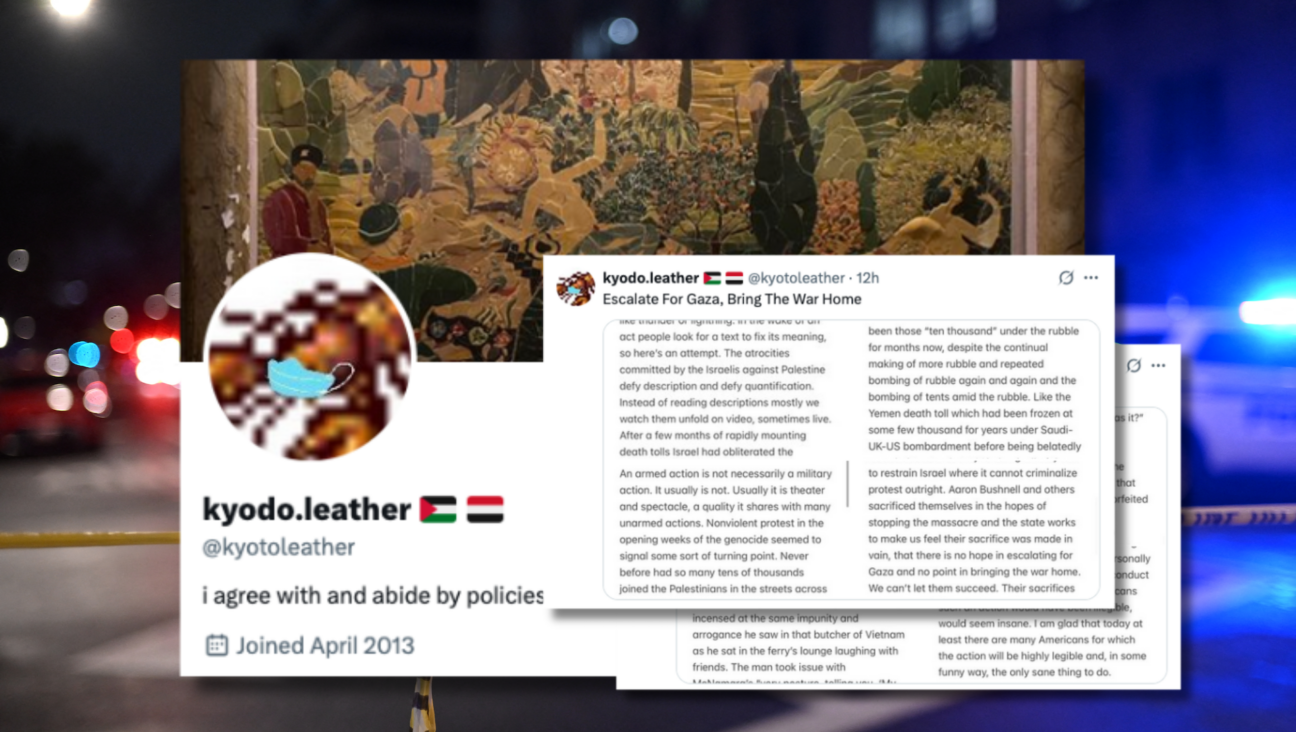Ethiopian Immigration Cut To Pay For Conflict
JERUSALEM — Israel is planning to halve the rate of Ethiopian immigration to pay for the recent Lebanon war, in a move that critics say would violate the government’s pledge to American Jewish charities to double the rate of new arrivals.
The government, in a draft of the 2007 state budget that was approved by the Cabinet on Tuesday, outlined its plan to reduce by January the number of Ethiopian immigrants arriving to 150 per month from 300 per month. But, partly because of protests in recent days from some American Jewish groups, the government may leave the monthly pace at 300, according to a source in Prime Minister Ehud Olmert’s office who declined to be identified because the decision was not yet official. The budget still needs to pass three parliamentary votes by March 31 to become law. The Ethiopians still waiting are part of what’s known as the Falash Mura, Jews who are now returning to Judaism after their ancestors converted to Christianity. Thousands of them have left their villages in Ethiopia and, as they await permission to immigrate to Israel, are living in squalid transit camps in Addis Ababa and the northern city of Gondar — many in overcrowded homes with no running water or electricity. A promise by former prime minister Ariel Sharon in February 2005 to double the pace of their immigration to 600 from 300 a month by June of that year was never implemented and was postponed repeatedly by the government.
The government has tied its decision to halve the immigration pace to its need to cut spending to pay for the war. The reduced rate of 150 per month remained in the Cabinet-approved budget, but some officials from the Ministry of Immigrant Absorption expressed hope that the change won’t be implemented.
“Yesterday morning we almost gave up on this issue, but at the end of the day we were much more optimistic,” said Erez Halfon, director-general of the Ministry of Immigrant Absorption, in an interview. “Now we feel we could put a stop to this plan.” According to Halfon, who took part in the Cabinet discussions Tuesday, Olmert said right before the ministers’ vote that he plans to conduct discussions on the Ethiopian issue before the Knesset takes its first vote on the budget in late October or early November.
Ever since the planned reduction was unveiled in the Finance Ministry’s budget proposal last week, it has drawn furious reactions. Leaders of local Jewish charitable federations in North America — many of whom had been encouraged by Sharon’s 2005 pledge and had raised funds to help Israel cover the costs of the immigration — directed a barrage of phone calls and letters to Israeli government officials in a bid to undo the change.
About 2,000 members of Israel’s Ethiopian community demonstrated Tuesday in front of Olmert’s office. They said that some of those in Gondar awaiting immigration to Israel have threatened to start a hunger strike in protest of the government’s decision. “We were disappointed when we learned that the government would not be fulfilling its commitment to double the rate of aliyah [immigration],” said John Ruskay, executive vice president and chief executive officer of the UJA-Federation of New York — the country’s largest federation — in an e-mail to the Forward just hours before the Cabinet vote. “Hence, news of the possible further reductions — particularly given the dollars involved, the call for aliyah, and the importance of the bonds with world Jewry — calls into question the decision making and what other issues are involved.”
Responding to Sharon’s pledge, United Jewish Communities, which is the national roof body of federations in North America, already has launched a $160 million fundraising project called Operation Promise, of which $100 million is aimed at covering the costs of Ethiopian immigration. At least a third of the total funds for Operation Promise have been raised already, UJC officials said in June. UJC also has rushed to help Israel following the recent war, obtaining obligations for almost $300 million in emergency funds to help repair damages in the country’s north and to revive the region’s shattered economy.
If carried out, a cut in Ethiopian immigration may affect Israel’s relations with some Diaspora Jewish groups. “No one issue can sever or irreparably damage our ties,” Ruskay said. “But if this decision is implemented, it certainly does not serve to strengthen them.” Nachman Shai, senior vice president and director general of UJC’s office in Israel, said he’s concerned about the disappointment of donors should the rate of immigration be reduced. “There’s a matter of trust here between us and our donors, whom we’ve recruited to help on this issue,” he said in an interview.
With a possible decrease in immigration, thousands of Ethiopians will have to wait much longer to come over.
At a rate of 150 a month, it could take up to eight years to bring over the remaining Ethiopians, according to the Tel Aviv-based law firm Goldfarb, Levy, Eran, Meiri & Co. The firm is representing a group of Ethiopian families and the organization Struggle to Save Ethiopian Jewry in a 2003 lawsuit filed against the government for dragging its feet on the issue.
That calculation takes into account about 14,500 Ethiopians in Addis Ababa and Gondar who await immigration.
Though Finance Ministry officials claim that the state could save about $34 million by halving immigration, Ethiopian activists say that costs have little to do with the government’s plan.
“The motivation here is racism,” said Avraham Neguise, executive director of the Ethiopian Israeli advocacy group South Wing to Zion. “The government wants to bring over Jews from Russia, France, England or any other communities that are strong from an economic or educational perspective. But it sees Ethiopians as an economic burden.”
Indeed, Israel’s Ethiopian community has its share of difficulties, with many living in poorer conditions than other Israelis. Ethiopians have a harder time adjusting to the Israeli job market because of their low education level, insufficient Hebrew, lack of professional capabilities and high percentage of single mothers in their community, according to a recent presentation by a Jerusalem research center, the Myers-JDC-Brookdale-Institute.
But despite the hardships, the Ethiopian community has made its own sacrifices to Israel. In the recent month-long war with the militant group Hezbollah, four Ethiopian soldiers in the Israeli army were killed and several wounded. One of the injured soldiers moved to Israel from Ethiopia several years ago, and his father still awaits immigration in Gondar, according to Neguise. Some Israeli politicians active in immigration issues vowed to fight the government’s plan, should it be implemented.
Michael Melchior, a Labor lawmaker who is part of the Knesset committee on Immigration, Absorption and Diaspora Affairs, said he might appeal to Israel’s Supreme Court to force the government to bring the remaining Ethiopians under the Law of Return, which allows Jews to settle in Israel and gain citizenship.
Previously, many were brought over via Israel’s humanitarian Law of Entry, according to which the interior minister may grant permits for non-Jews to reside in Israel. Many receive Israeli citizenship only when they complete the process of returning to Judaism, which includes learning Hebrew, according to Ethiopian activists.
“You can’t play with the fate of human beings like this,” said Melchior, who served previous Israeli governments as a top envoy to Diaspora Jewry. “It’s not moral, it’s not ethical and it’s not Jewish. This isn’t just about cutting a budget. This is the heart of Zionism.”





















